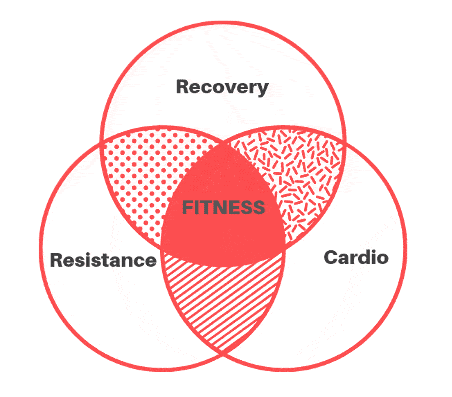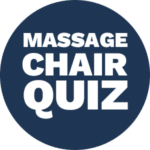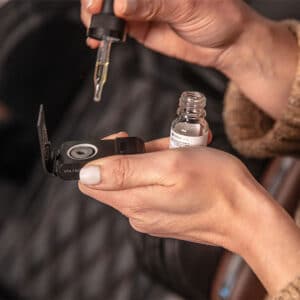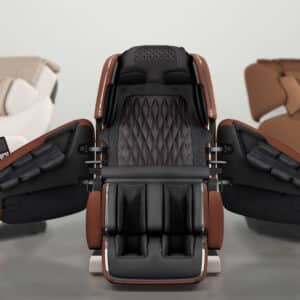

OK, Boomer. The Fitness Industry Is Finally Listening
Share this article:
“We have the money, and we are very willing to spend our wealth to protect our health.”
Baby Boomer & Fitness Industry Expert, Tony De Leede
The Boomer Effect
Baby Boomers – those born between 1946 and 1964 – have shaped prime markets of the economy throughout every stage of life. This “Boomer Effect” is now impacting the fitness industry, too.
Heaps of people are retiring every day in the US, and these aging Boomers aren’t ready to slow down or spend their time in a rocking chair. They’ve worked hard their entire lives, and now they have every intention of enjoying a fun-filled, active lifestyle for many years to come.
Boomers are prepared to invest in opportunities that make them feel young and protect their health for things like traveling, new hobbies, and unknown adventures. Above all, they aren’t your typical grandparent figures of the past. Since they possess much of the wealth of the US, the fitness industry is scrambling to adapt to the new wellness demands of aging consumers.
The Shift from Fitness to Wellness
On a recent walk through the rolling hills of Colorado, I was listening to a podcast with fitness industry veteran, Tony De Leede. He defined fitness as being one aspect of health under the wellness umbrella.

Historically speaking, the fitness industry has primarily focused on weight training and cardiovascular exercise. However, Boomers have never been the “gym-goer” types. Tony calls them the “forgotten generation” in the fitness industry because most clubs have catered to the young and fit. The loud music, clanging weights, and sweaty high-intensity classes can be intimidating for Boomers.
So, now fitness centers are beginning to acknowledge the connection between fitness and wellness by offering other options, like recovery, stress management, and mobility. It is all part of what I call the Fitness Triad: resistance, cardio, and recovery.

The Elusive 80%
For the 20+ years I’ve been in the fitness industry, there has always been at least 80% of the population that does not belong to a fitness center. I spent years working in clinical exercise research, personal training, corporate wellness, cardiac rehab, and group fitness looking for the “stickiest” way to help people be healthier, but have yet to find the silver bullet. Year after year, the same 20% of the population joins gyms and the same 80% doesn’t.
Ways to engage the elusive 80% in fitness have been debated by strength experts, cardio advocates, club owners, and researchers around the world, but nothing has been successful in moving the needle significantly.
Boomers are showing the fitness industry the way forward, and many operators are listening. This just may be the opportunity everyone has been looking for to expand the market beyond the usual 20%. As Tony says, “wellness is where it’s at for the future.”
The Next Step
First of all, Boomers may be driving this shift, but they aren’t the only ones seeking out wellness options. Other groups like athletes, younger generations, and corporate executives are all realizing the importance of recovery and stress management tools to help them operate at their best.
So, the question at hand is, “How should the fitness industry respond?”
I agree with Tony that we can all start with the words we use. Words like “fitness,” “exercise,” and weight lifting are scary words for people who just want to live well, protect their health, and keep active. So, it’s important to seek out alternative words like “wellbeing,” “mindfulness,” “rejuvenation,” “recover,” and “breathing.”

Examples of wellness offerings can include massage chairs for reduced heart rate, blood pressure, and perceived stress. Infrared saunas for a host of health benefits. As well as, other options like guided breathing, meditation, stretching, and more.
Future Trends
This trend is even moving beyond fitness businesses and into all industries like hospitality, active aging facilities, and corporations. They are all trying to find ways to bring wellness into their spaces.
The biggest challenge facilities face is finding space on already crowded floors. Fitness centers have already become a “third space” where members regularly spend their time outside of home and work. Now it’s time for facilities to create a third space within the fitness centers that includes wellness offerings. It needs to be separate, quiet, and non-intimidating.
In conclusion, on behalf of the Boomers and everyone else who values lifelong wellness, I applaud Tony’s challenge to club owners who haven’t yet made this shift…to just do it:
“Rather than saying that we can’t do it because it won’t fit. You have to figure out how to make it fit and stop looking at reasons that it can’t be done. You can either lead, follow, or get out of the way. It is here. It is staying here. If you want to grow your business, you need to look at how you can do it.”
~ Tony De Leede
Resources :











